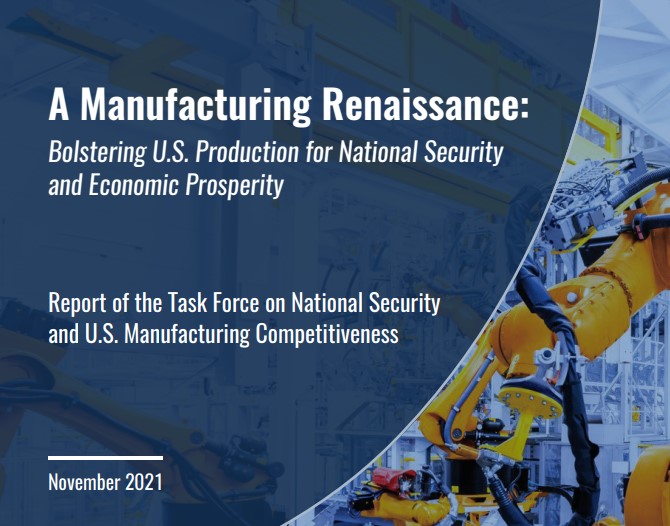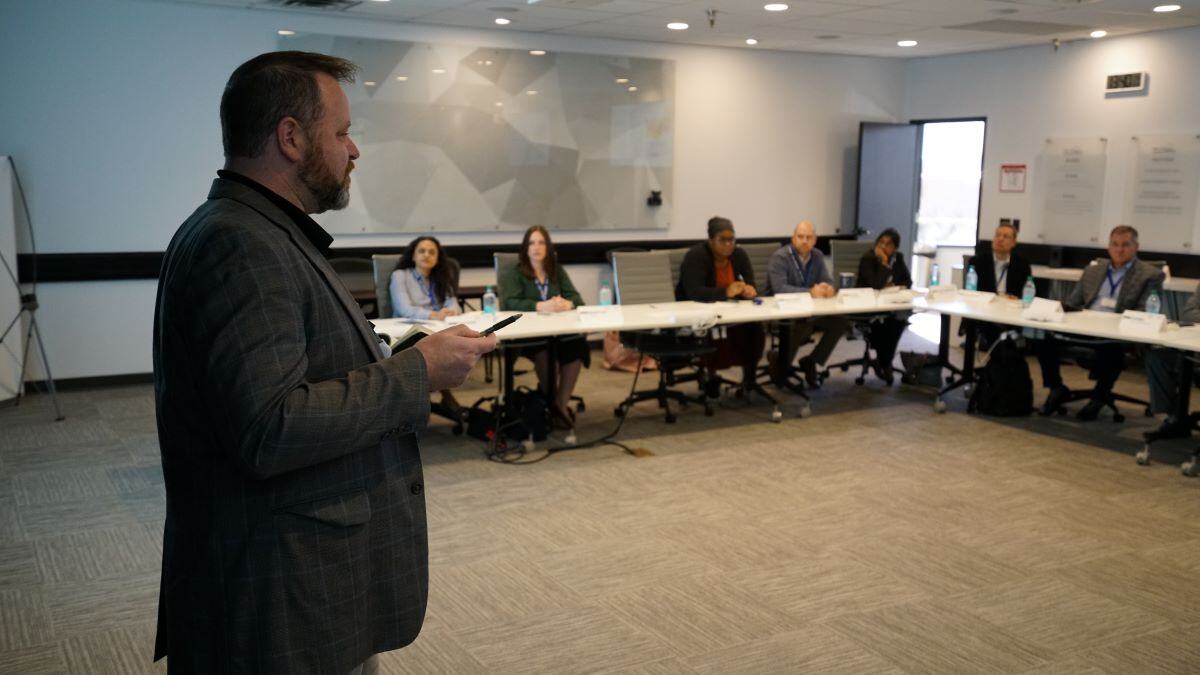This news release was originally published by the Ronald Reagan Presidential Foundation and Institute.
WASHINGTON (November 16, 2021) The Reagan Institute’s Center for Peace Through Strength today released the findings and recommendations of its bipartisan Task Force on National Security and U.S. Manufacturing Competitiveness. Titled, “A Manufacturing Renaissance: Bolstering U.S. Production for National Security and Economic Prosperity,” the report focuses on four key recommendations, including scaling up workforce training, establishing public-private partnerships to invest in manufacturing, modernizing the Defense Production Act for the 21st century, and creating a new global forum for geoeconomic cooperation. The Task Force found that these targeted, mutually reinforcing steps will be necessary for revitalizing America’s manufacturing competitiveness to support economic growth, supply chain resiliency, and national security.
Co-chaired by Marillyn Hewson, former Chairman, President, and CEO of Lockheed Martin, and David McCormick, the CEO of Bridgewater Associates and a former Undersecretary of the Treasury for International Affairs, the Task Force included leaders and experts in national security, manufacturing, capital, supply chains, and public policy.
“The economic and national security threat from China cannot be ignored,” said Task Force co-chair Marillyn Hewson. “There is bipartisan support to take action, and this report identifies steps that we can take to strengthen and leverage investments in infrastructure, facilities, technology, and most importantly, people.”
“The COVID-19 pandemic showed us that we can no longer afford to neglect the resiliency of our supply chains and defer capital investment in national security-critical sectors. The pandemic also demonstrated the creative potential inherent in America’s economy,” said Task Force co-chair David McCormick. “By investing in that potential, we can rebuild a world-class manufacturing sector that helps to keep our country safe.”
The Task Force identified six major challenges to revitalizing America’s manufacturing competitiveness. These include a significant skills gap, unsatisfactory productivity gains, inadequate investment in infrastructure, a fragile supplier ecosystem, insufficient coordination among government actors, and inadequate architecture for international competition.
To address these challenges, the Task Force proposed four signature policy recommendations:
- Scale up workforce development programs to credential more workers for high-demand trades: We should expand employers’ roles in workforce training by repurposing existing federal education grants to allow high school graduates to earn credentialed skills. U.S. manufacturers should commit to fund 500,000 new graduates of trade school and apprenticeship programs over the next decade.
- Stand up a public-private capability to finance investments in domestic manufacturing sectors critical to national security: The federal government must develop the capability to work with private sector employers, as well as state and local governments, to provide liquidity and low-cost capital to critical domestic manufacturers and infrastructure.
- Modernize the Defense Production Act for the 21st Century: Update the DPA to enable holistic solutions for critical manufacturing facilities, such as targeted visa approvals for STEM talent, direct project financing, automatic fast-tracking of permits, and investments in workforce training.
- Establish a new forum of G7 + Quad countries to coordinate on geoeconomic issues: The United States should establish a new forum to promote enhanced coordination on topics like growth, data governance, technology standards, and supply chain security.
“The Reagan Institute is grateful for the time and energy Task Force members have dedicated to studying the decline of our manufacturing base and erosion of our economic competitiveness,” said Reagan Institute Director Roger Zakheim. “These are not new issues, nor are they ones that government or the private sector alone can solve. The Task Force has identified the targeted steps we must take now to begin to generate the sustained renewal of our manufacturing competitiveness, which will be vital to maintaining our national security and preserving America’s edge over China.”
The Task Force’s final report and recommendations are available here.






